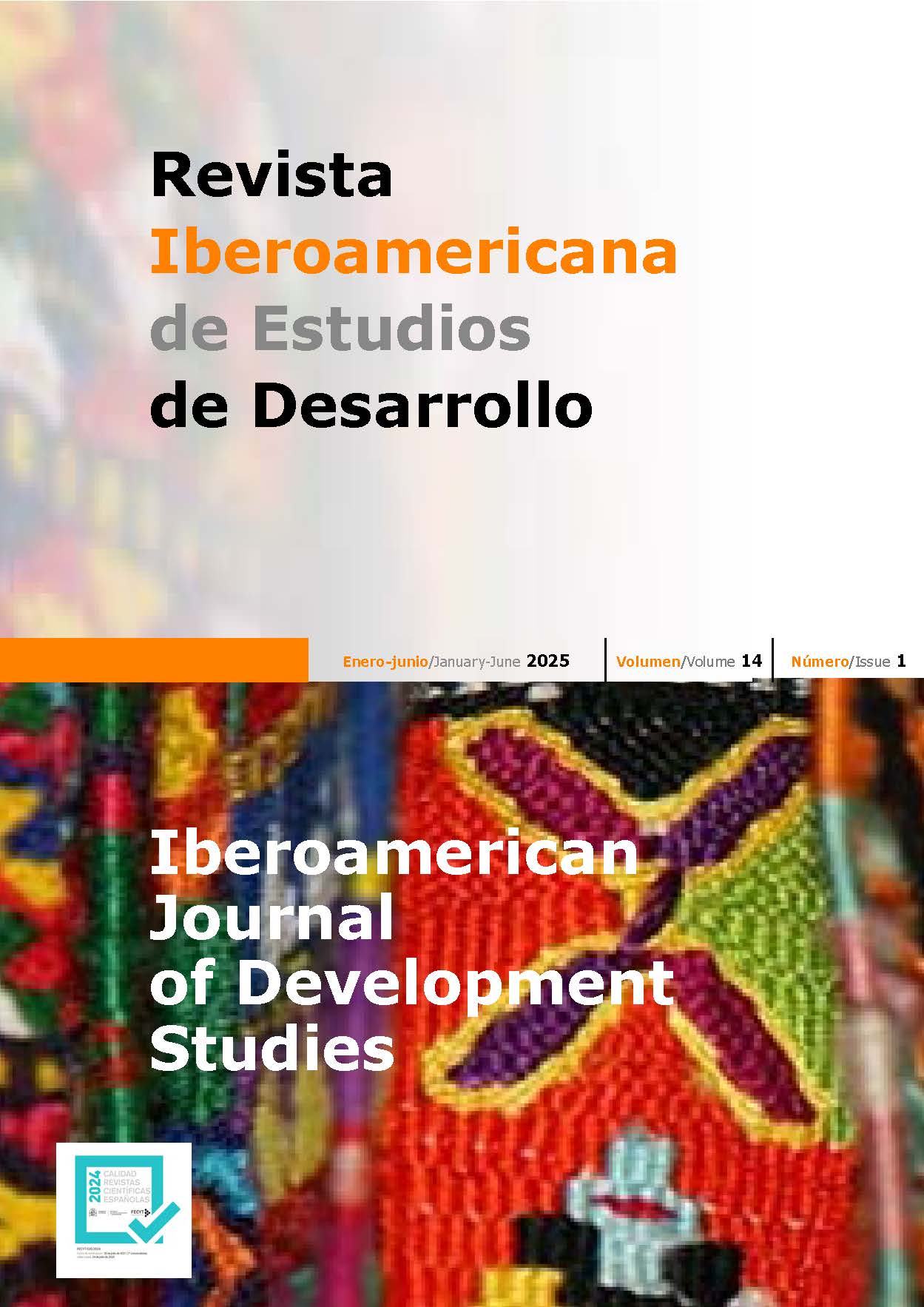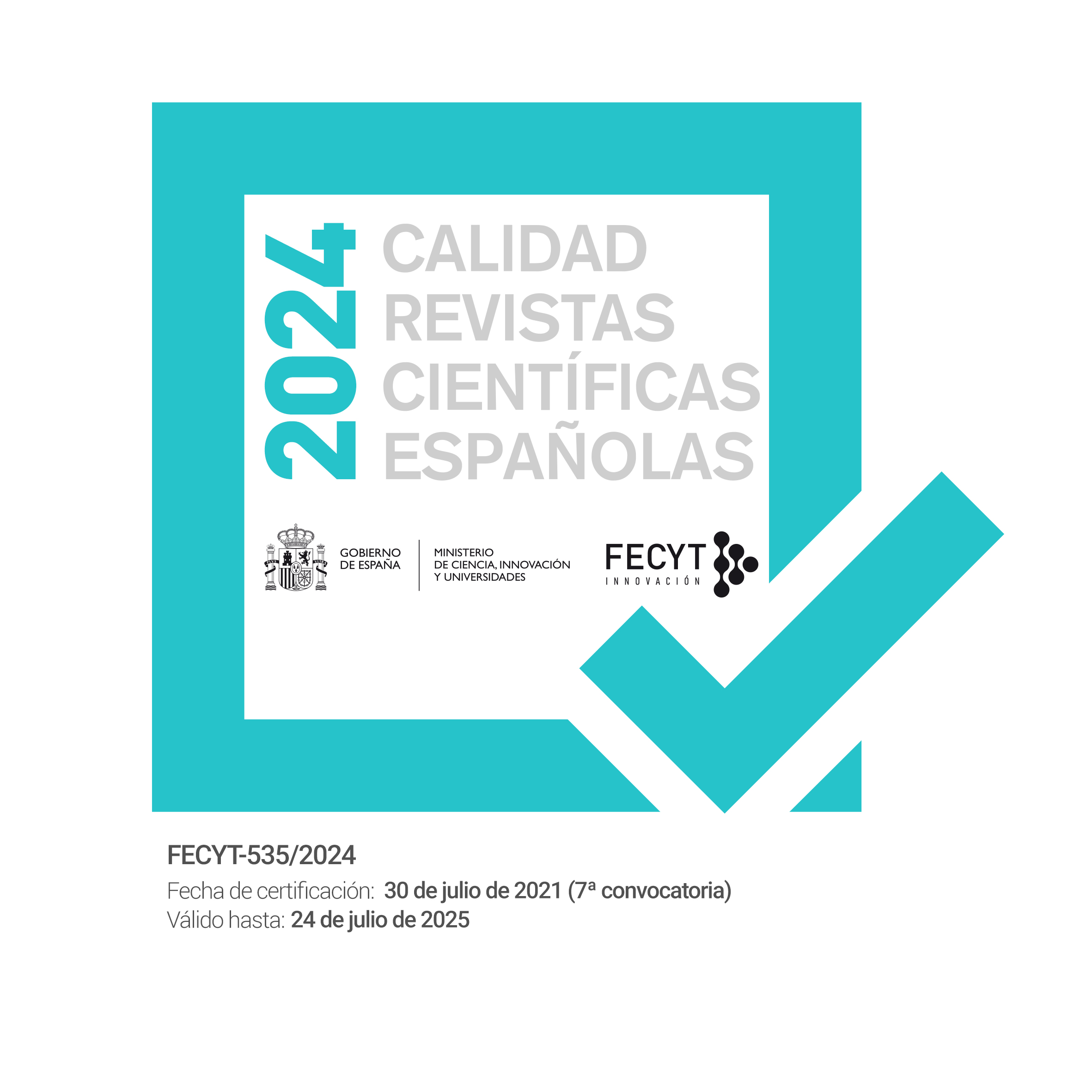Contributions of the social and solidarity economy to the ecosocial transition from waste management. Notes from the experience of Rag-Pickers of Emaús Navarra
DOI:
https://doi.org/10.26754/ojs_ried/ijds.10699Keywords:
waste, ecosocial transition, public-social partnership, social and solidarity economy, economic rationalityAbstract
This article focuses on the contributions that the social and solidarity economy (SSE) can make to the eco-social transition and to forms of social innovation, based on cooperation between the public sector and social initiatives in the field of waste management. The text presents the experience of Rag-Pickers of Emaús Navarra, an SSE entity dedicated to the recovery of bulky waste. Based on ethnographic research, it presents the specificities of this organisation that make it extremely unique and the impact of its relationship with public institutions, as well as the diversity of economic rationalities, that coexist within it. The article seeks to identify lines of action that could guide public policies towards a just eco-social transition in waste management, combining environmental and social inclusion objectives.
Display downloads
References
ACOSTA A (2016). Post-extractivismo: entre el discurso y la praxis. Algunas reflexiones gruesas para la acción. Ciencia Política 11(21):287-332. DOI: https://doi.org/10.15446/cp.v11n21.60297
ALEXANDER C (2009). Illusions of freedom: Polanyi and the third sector. En: Hann C, Hart K (eds.). Market and Society: The Great Transformation Today. Cambridge University Press, Cambridge, pp. 221-239. DOI: https://doi.org/10.1017/CBO9780511581380.012
ALEXANDER C, RENO J (2018). Economies of Recycling. The Global Transformation of Material, Values and Social Relations. Zed Books, Londres.
AMBROISINE J (2014). Les communautés Emmaüs en Europe. Revue Internationale de l’Economie Sociale 332:74-92. DOI: https://doi.org/10.7202/1024824ar
AMEZAGA A, BALBOA T, GALLASTEGI A, SAINZ DE MURIETA A (2022). Bherria: el espacio de referencia para la colaboración público-social en Euskadi. Zerbitzuan. Revista de Servicios Sociales 76:109-118. DOI: https://doi.org/10.5569/1134-7147.76.08
ANGEL J (2016). Towards an Energy Politics in-against-and-Beyond the State: Berlin’s Struggle for Energy Democracy. Antipode 49(3):557-576. DOI: https://doi.org/10.1111/anti.12289
BECERRA L, CARENZO S, JUÁREZ P (2020). When Circular Economy Meets Inclusive Development. Insights from Urban Recycling and Rural Water Access in Argentina, Sustainability 12(23):9809. DOI: https://doi.org/10.3390/su12239809
BERNÁ D, SAMA S., HOMS P (2024). Habitar, consumir y cultivar. Procesos e iniciativas para la transición ecosocial en Cataluña y Madrid. Revista Española de Sociología 33(3):a236. DOI: https://doi.org/10.22325/fes/res.2024.236
BIANCHI I (2024). The democratising capacity of new municipalism: beyond direct democracy in public-commons partnerships. Policy & Politics XX(XX):1-20.
CARENZO S, SORROCHE S (2021). The politics of waste picking: reflections from the upscaling of a co-management model for recyclable waste in Buenos Aires (Argentina). Géocarrefour 95(95/1). DOI: https://doi.org/10.4000/geocarrefour.16682
DEMARIA F (2023). The Political Ecology of Informal Waste Recyclers in India: Circular Economy, Green Jobs, and Poverty. Oxford University Press, Oxford. DOI: https://doi.org/10.1093/oso/9780192869050.001.0001
DÍAZ F, LOURÉS ML, MARTÍNEZ I (2021). Los espacios públicos de gestión ciudadana. Nuevas formas de gestión público-comunitaria en Zaragoza (España), Gestión y Política Pública 30(2):67-100. DOI: https://doi.org/10.29265/gypp.v30i2.879
DÍAZ R, GARCÍA JM, FUNDACIÓ ESPIGOLADORS, MARTÍN MC, DI DONATO M (2022). El fin de la sociedad del Despilfarro. Repensando nuestro modo de producción y consumo para reducir la contaminación y los residuos. Fuhem, Madrid.
ESCOBAR A (2012). Más allá del desarrollo: posdesarrollo y transiciones hacia el pluriverso. Revista de Antropología Social 21:23-52. https://doi.org/10.5209/rev_RASO.2012.v21.40049, acceso 21 de enero de 2025. DOI: https://doi.org/10.5209/rev_RASO.2012.v21.40049
FEOLA G (2020). Capitalism in sustainability transitions research: time for a critical turn? Environmental Innovation and Societal Transitions 35(2020):241-250. DOI: https://doi.org/10.1016/j.eist.2019.02.005
FEOLA G, VINCENT O, MOORE D (2021). (Un)making in sustainability transformation beyond capitalism. Global Enviromental Change 69(2021):102290. DOI: https://doi.org/10.1016/j.gloenvcha.2021.102290
GARCÍA-OLIVARES A, LÓPEZ RC (2021). Los nuevos retos ambientales y energéticos y la transición ecosocial. Política y Sociedad 58(2):e64877. DOI: https://doi.org/10.5209/poso.64877
GEELS FW, VERHEES B (2011). Cultural legitimacy and framing struggles in innovation journeys: a cultural‐performative perspective and a case study of Dutch nuclear energy (1945‐1986). Technological Forecasting and Social Change 78:910-930. DOI: https://doi.org/10.1016/j.techfore.2010.12.004
GENOVESE A, PANSERA M (2020). The Circular Economy at a Crossroads: Technocratic Eco-Modernism or Convivial Technology for Social Revolution? Capitalism Nature Socialism 1-19. https://doi.org/10.1080/10455752.2020.1763414, acceso 26 de enero de 2025. DOI: https://doi.org/10.1080/10455752.2020.1763414
GUDYNAS E (2011). Más allá del nuevo extractivismo: transiciones sostenibles y alternativas al desarrollo. En: Wanderley F (coord.). El desarrollo en cuestión. Reflexiones desde América Latina. Oxfam y Cides-UMSA, La Paz.
GUTBERLET J, CARENZO S (2020). Waste Pickers at the Heart of the Circular Economy: A Perspective of Inclusive Recycling from the Global South. Worldwide Waste 3(1):6. DOI: https://doi.org/10.5334/wwwj.50
GUTBERLET J, CARENZO S, KAIN JH, MANTOVANI A (2017). Waste picker organizations and their contribution to the circular economy: two case studies from a Global South perspective. Resources 6(52):6040052. DOI: https://doi.org/10.3390/resources6040052
HARVEY D (1989). From managerialism to entrepeneurialism. The transformation in urban governance in late capitalism. Geografiska Annaler 71B:3-17. DOI: https://doi.org/10.1080/04353684.1989.11879583
HARVEY D (2012). Rebel Cities. From the Right to the City to the Urban Revolution. Verso, Londres.
HESPANHA P, SANTOS LL (2016). O nome é a coisa. Sobre a invisibilidade e a ausencia de reconhecimento institucional da Economia Solidária em Portugal. Revista de Economia Solidária 9:22-68.
HICKEL J (2023). Menos es más. Cómo el decrecimiento salvará el mundo. Capitán Swing, Madrid.
HIDALGO AC, CUBILLO AP (2016). Transmodernidad y transdesarrollo. el decrecimiento y el buen vivir como dos versiones análogas de un transdesarrollo transmoderno. Bonanza, Huelva.
HOPMAN L, KISHIMOTO L, RUSSELL B, VALENTIN L (2021). Democratic and Collective Ownership of Public Goods and Services. Exploring Public-Community Collaborations. Transnational Institute, Ámsterdam.
JACKSON T (2023). Poscrecimiento. La vida después del capitalismo. Ned Ediciones, Barcelona.
KÖHLER J, GEELS F, KERN F, MARKARD E, ONSONGO E, WICZOREK A, ALKEMADE F, AVELINO F, BERGEK A, BOONS F, FÜNFSCHILLING L, HESS D, HOLTZ G, HYYSALO S, JENKINS K, KIVIMAA P, MARTISKAINEN M, MCMEEKIN A, MÜHLEMEIER MS, NYKVIST B, WELLS P (2019). An agenda for sustainability transitions research: state of the art and future directions. Environmental Innovation and Societal Transitions 31(2019):1-32. DOI: https://doi.org/10.1016/j.eist.2019.01.004
LATOUCHE, S (2008). La apuesta por el decrecimiento. ¿Cómo salir del imaginario dominante? Icaria, Barcelona.
LEKAN M, JONAS A, DEUTZ P (2021). Circularity as Alterity? Untangling Circuits of Value in the Social Enterprise ‒ Led Local Development of the Circular Economy. Economic Geography 97(3):257-283. DOI: https://doi.org/10.1080/00130095.2021.1931109
MATTEI U (2013). Bienes comunes. Un manifiesto. Trotta, Madrid.
MILLAR K (2018). Reclaiming the Discarded. Life and Labor on Rio’s Garbage Dump. Duke University Press, Durham. DOI: https://doi.org/10.1215/9780822372073
MORAIS J, CORDER G, GOLEV A, LAWSON L, SALEEM A (2022). Global review of human waste-picking and its contribution to poverty alleviation and a circular economy. Environmental Research Letters 17:063002. DOI: https://doi.org/10.1088/1748-9326/ac6b49
O’HARE P (2019). Waste. Cambridge Encyclopedia of Anthropology, Cambridge. DOI: https://doi.org/10.29164/19waste
POLANYI K (1997). La Gran Transformación. Crítica del liberalismo económico. La Piqueta, Madrid.
POLLIN R (2018). Por un nuevo New Deal verde. New Left Review 112:7-32.
PORRAS J, RENDON M, ESPLUGA J (2021). Policing the stigma in our waste: what we know about informal waste pickers in the global north. Local Environment 26(10):1299-1312. DOI: https://doi.org/10.1080/13549839.2021.1974368
QUEVEDO R (2020). Basura Cero. Experiencia de una política pública para la Economía popular. Desde Abajo. Fundación Rosa Luxemburgo, Bogotá.
RAWORTH, K (2018). Economía rosquilla: 7 maneras de pensar la economía en el siglo XXI. Paidós, Barcelona.
RENDUELES C, SUBIRATS J (2016). Los (bienes) comunes: ¿oportunidad o espejismo? Icaria, Barcelona.
ROSAS-BAÑOS M (2012). Economía Ecológica y Solidaria: rumbo a una propuesta teórica integrada que visualice las rutas hacia la transición. Revista Iberoamericana de Economía Ecológica 18:89-103.
RUSELL B, MILLBURN K (2020). Public-common partnerships, autogestion, and the right to the city. En: Milburn K, Rusell B (eds.). Capitalism and the Commons: Just Commons in the Era of Multiple Crises. Routledge, Londres, pp. 135-150. DOI: https://doi.org/10.4324/9780367822835-13
SAIDÓN M, SORROCHE S, DIMARCO S, SCHAMBER P (2022). Heterogeneidad de la recuperación de residuos en municipios del Área Metropolitana de Buenos Aires. Reflexiones para la promoción de políticas inclusivas. Revista iberoamericana de estudios municipales 26:0-0. DOI: https://doi.org/10.32457/riem26.1839
SANZ J (2019). Economía social y solidaria, emprendimiento social y economía popular en la sociedad post-crisis. Revista de Antropología Social 28(2):205-226. DOI: https://doi.org/10.5209/raso.65612
SANZ J (2025). “Si me pasa algo, me apoya el colectivo”. Un análisis a las prácticas de construcción de la solidaridad dentro de la economía social y solidaria a partir de la experiencia de traperos de Emaús-Navarra. REVESCO. Revista de Estudios Cooperativos, 1-14. https://doi.org/10.5209/reve.101839 DOI: https://doi.org/10.5209/reve.101839
SANZ J, SAMA S, CARRERO G (2023). Economic, institutional and political advocacy tensions in the field of solidarity economy and commons: an ethnographic approach drawing from three case studies. En: Fernandes-Esteves A, Henfrey T, Santos LL, Leal L. (eds.). Solidarity Economy, Alternative Spaces, Power and Politics. Routledge, Londres.
SARASINI S, LINDER M (2018). Integrating a business model perspective into transition theory: the example of new mobility services. Environmental Innovation and Societal Transitions 27:16-31. DOI: https://doi.org/10.1016/j.eist.2017.09.004
SCHAMBER PJ, SUÁREZ FM (2021). De trenes y camiones a campanas y etapas: transformaciones del sistema de inclusión de recuperadores urbanos en la gestión de los residuos secos de la Ciudad Autónoma de Buenos Aires (2008-2020). Revista Perspectivas de Políticas Públicas 11(21):127-151. DOI: https://doi.org/10.18294/rppp.2021.3866
SCHEINBERG A, NESIĆ J, SAVAIN R, LUPPI P, SINNOTT P, PETEAN F, POP F (2016). From collision to collaboration. Integrating informal recyclers and re-use operators in Europe: a review. Waste Management & Research 34(9):820-839. DOI: https://doi.org/10.1177/0734242X16657608
SCHRÖDER P (2020). Promoting a Just Transition to an Inclusive Circular Economy. Research Paper, abril. Chatham House.
SUBIRATS J (2015). Innovación social y políticas urbanas en España. Experiencias significativas en las grandes ciudades. Icaria, Barcelona
SVAMPA M (2022). Dilemas de la transición ecosocial desde América Latina. N.º extra 12. Fundación Carolina/Oxfam Intermón. Documentos de Trabajo. DOI: https://doi.org/10.33960/issn-e.1885-9119.DTFO02
UNCETA K (2014). Desarrollo, poscrecimiento y Buen Vivir: debates e interrogantes. Abya-Yala, Quito.
VILLALBA U, GONZÁLEZ C, SAHAKIAN M (2020). Complementariedades entre economía social y solidaria y economía circular. Estudios de caso en el País Vasco y Suiza Occidental. Hegoa, Instituto de Estudios sobre Desarrollo Cooperación Internacional. Universidad del País Vasco, 83, pp. 1-66.
VILLALBA-EGUILUZ U, SAHAKIAN M, GONZÁLEZ-JAMETT C, ETXEZARRETA E (2023). Social and solidarity economy insights for the circular economy: limited-profit and sufficiency. Journal of Cleaner Production, 418:138050. DOI: https://doi.org/10.1016/j.jclepro.2023.138050
Downloads
Published
Issue
Section
License
Copyright (c) 2025 Jesús Sanz-Abad

This work is licensed under a Creative Commons Attribution-NonCommercial-NoDerivatives 4.0 International License.
How to Cite
Accepted 2025-01-08
Published 2025-05-06
Funding data
-
Ministerio de Ciencia e Innovación
Grant numbers Proyecto de I+D+i “Cambiando los paradigmas: economías transformadoras en un contexto de urgencia ecosocial” (I+D+I PID2019- 106757GA-I00. Financiado por MCIN/AEI/ 10.13039/501100011033)








